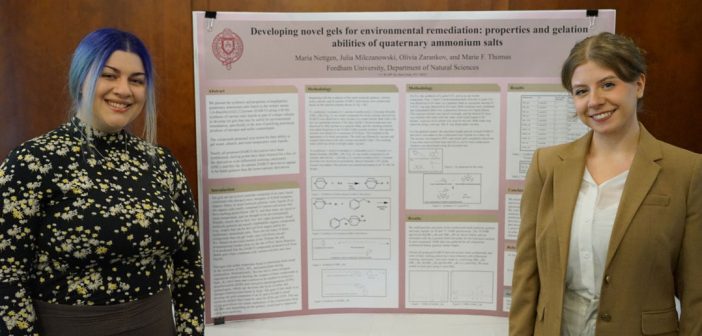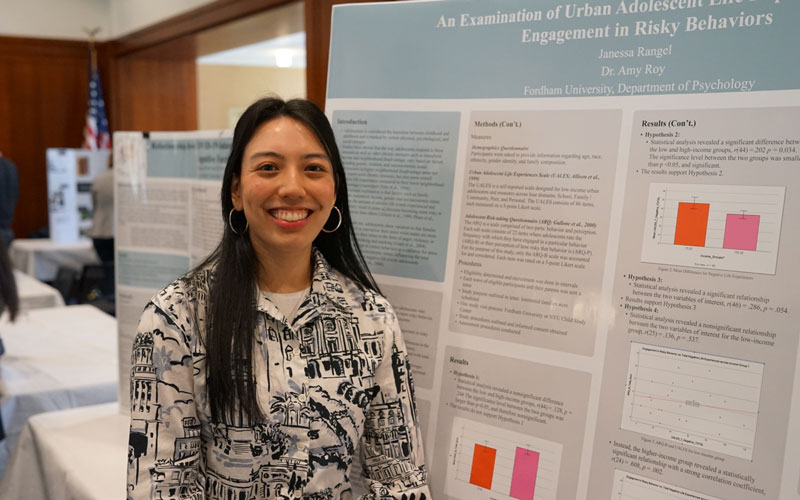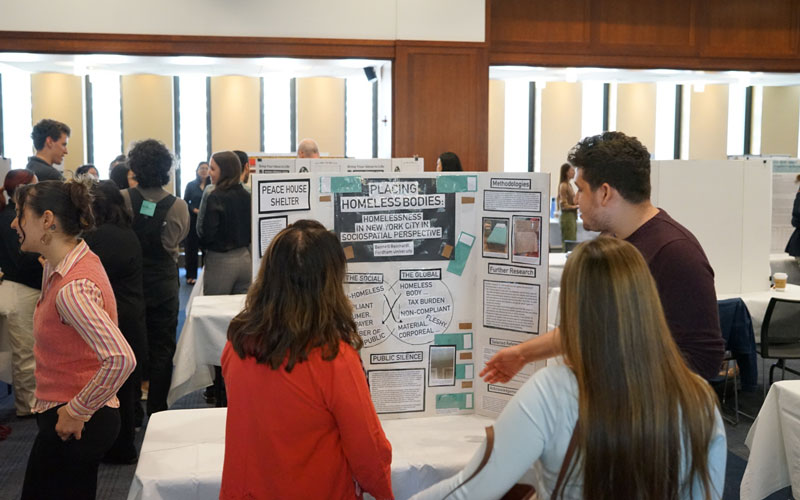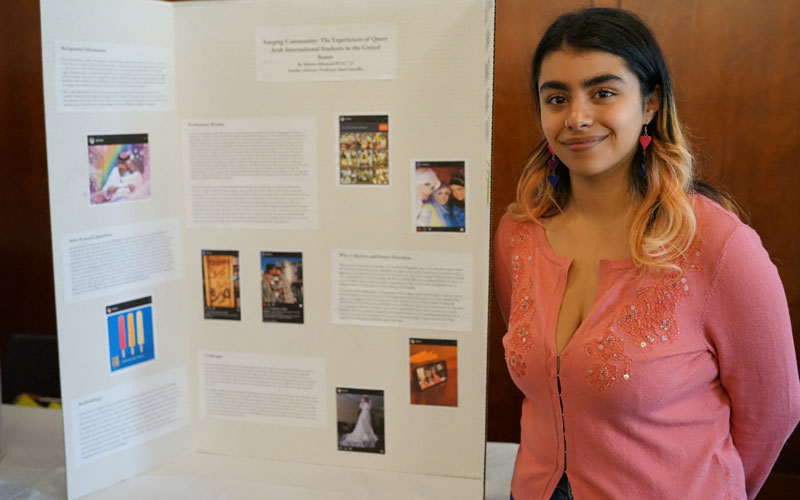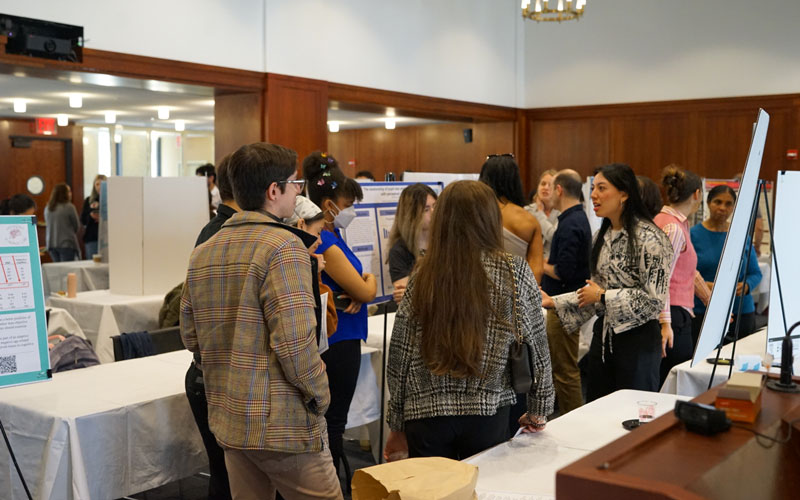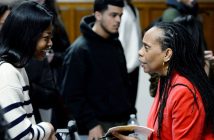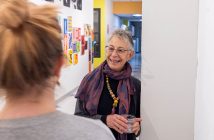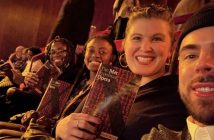Using Gels to Help Purify Fuel Sources
Marie Thomas, Ph.D., an assistant professor of chemistry, has done a lot of research on ionic liquids—salts that take the form of liquid at room temperature—and how they can be used to break down materials. This year she worked on a project with some of her students, including seniors Maria Nettgen, who is majoring in environmental science, and Julia Milczanowski, who is majoring in natural science, to use these liquids to create ionic gels that could be used in environmental remediation efforts.
For their research project, they created a variety of gels that will eventually be tested for their effectiveness.
“The eventual goal is to see if those gels would be able to purify petroleum fuel sources by removing nitrogen and sulfur from petroleum,” Milczanowski said. “Because when you burn petroleum with those things in it, it gets into the atmosphere, can lead to acid rain and basically overall bad things to the environment, so our goal is to prevent that from happening.”
Nettgen said that these gels, if they work at capturing the nitrogen and sulfur, could prove helpful in a world that isn’t going to stop burning fuels any time soon.
“If we’re trying to create a greener environment, the idea is then if we’re still going to be burning fuels, let’s make them as green as possible so that they’re impacting our atmosphere in the most minute way,” she said.
‘Risky Behaviors’ in Adolescents
Janessa Rangel, a senior majoring in integrative neuroscience, focused her research on adolescent life experiences and the transitions that come with them.
“There are a lot of social and psychological changes, and with that come negative life events, inevitably,” said Rangel, who was particularly interested in adolescents in New York City.
She said previous research shows that compared to their higher-income peers, lower-income adolescents “experience more overall negative life events, based on the amount of chronic stressors that they have [and] neighborhood disadvantages.”
She wanted to build on that research and explore the connection between adolescents’ life experiences and their willingness to engage in “risky behaviors.” Oftentimes, Rangel noted, lower-income adolescents are depicted in the media as “the bad influences” and the ones engaging in risky behaviors, such as drug use.
But her research, using data from two separate questionnaires, found lower-income adolescents did not engage in as many risky behaviors, something she said might come from a desire to not “lose it all” and face negative consequences. On the other hand, she found that higher-income adolescents “don’t have a lot of chronic stressors, and there is that wealth cushion, so they’re able to engage in risky behaviors.”
Homeless Shelters: A Local Perspective
Bennett Reinhardt, a senior majoring in urban studies, has been involved with local housing justice and homelessness-related organizations for the last five years.
“I knew that I wanted to bring an academic perspective to this issue,” said Reinhardt, who will be working as a community organizer around housing and homelessness after graduation. “Homelessness is one of the biggest crises facing the contemporary city.”
Reinhardt embedded himself with a local organization running a respite shelter one day a week in a church basement in Manhattan. Up to 14 people stay in the volunteer-run shelter each Sunday, and they’re provided with a bed, home-cooked meals, and other resources.
Through his research, which included observations and interviews, Reinhardt tried to show “what’s good about this model, [which]is that people feel it’s a protected environment, it’s a safe environment, and that the food is far better because it’s cooked by volunteers,” he said. “What’s challenging about this model is that it’s difficult to replicate at a [large] kind of scale.”
How Queer Arab International Students Are Finding Community
Minwa Alhamad, a senior majoring in anthropology and political science, said she was inspired to do her research project after taking a class with Professor Aseel Sawalha, her mentor, on the anthropology of gender and sexuality.
“That’s where I started wanting to write ethnographic research on queer and Arab people specifically and the intersectionality of that—I’m queer and Arab—and so I wanted to know more about it because there’s not a lot of academic research out there.”
Alhamad said that she started this research focusing on “nonbelonging.”
“I wanted to talk about how they didn’t belong in their origin countries because of their queerness, and they didn’t belong here because of their Arab-ness,” she said.
But as she started conducting interviews with international students from Arab countries, her respondents inspired her to shift her theme from one of identity to the idea of forging community.
“They told me how they use social media and other various mediums to create a queer Arab community,” Alhamad said. “They have slang that’s specific to that community so that if someone’s using it, you know that’s a safe place for you.”
